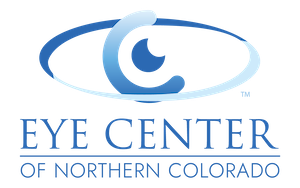07 Jan Vision Laser Eye Surgery
Vision laser eye surgery involves the use of a laser to decrease the need for glasses or contact lenses. There are to basic categories of vision laser eye surgery: 1. Corneal based procedures and 2. Lens based procedures.
Corneal Based Vision Correction
In Corneal based vision laser eye surgery, an excimer laser is used to reshape your cornea to restore focus for your distance vision. LASIK and PRK are the two most common types of corneal based vision laser eye surgery.
In LASIK, a thin flap is created using either a femtosecond laser or a thin oscillating razor called a microkeratome. This thin flap is elevated and an excimer laser is used to reshape the cornea. The flap is then returned to its original position and allowed to strengthen. Most experienced LASIK surgeons recommend using the femtosecond laser to create your flap if you choose LASIK.
In PRK, the surface epithelium is removed from the central part of the cornea and the excimer laser is used to reshape the cornea to restore focus. It takes about four days for the epithelium to grow back over the treated area.
Your vision returns faster with LASIK but your cornea is stronger after PRK. LASIK is more comfortable during the healing phase. Both LASIK and PRK have similar 20/20 rates.
Lens Based Vision Laser Eye Surgery
In Lens based vision laser eye, a femtosecond laser is used to make small incisions in your eye and to break up the lens inside your eye. The lens fragments are removed and replaced with a small plastic intraocular lens. The lens implants come in a variety of powers. Measurements are completed prior to your vision laser eye surgery to determine which dysfunctional lens replacement implant would best restore focus to your vision.
Single vision lens implants give distance vision without glasses while the multifocal and accommodating lens implants give many patients both distance and near vision without glasses.
Should I have LASIK or Dysfunctional Lens Replacement?
With age, the lens inside your eye starts to loose function. This is called dysfunctional lens syndrome. In the early stages of dysfunctional lens syndrome you loose the ability to read without glasses but can still see clearly with glasses on. As the dysfunction progresses, the lens causes glare with night driving. In its later stages, the lens turns into a yellow cataract that you cant see through, even with glasses.
Younger patients still have healthy lenses, so they usually choose to have their vision corrected with a corneal based procedure like LASIK or PRK. Patients in their sixties often have advanced stages of dysfunctional lens syndrome so most choose to have lens based vision laser eye surgery, opting to have their lenses removed and lens replacement implants placed to restore good vision.
Patients in their 50’s have to wrestle a bit more with their decisions. Those that are fine wearing reading glasses usually choose LASIK/PRK.
Those that don’t want reading glasses usually choose LASIK if they like monovision (one eye for distance and the other for reading) when they trial it with contact lenses. If they don’t like monovision, many tend to have their lenses replaced with a multifocal or accommodating lens replacement implant.
KAMRA Corneal Inlay
It is possible that an entirely new option for both distance and near vision will become FDA approved called the KAMRA corneal inlay. In this form of vision laser eye surgery, a femtosecond laser makes a small pocket in your cornea and a small inlay is placed inside the pocket of one of your eyes. With this inlay, international data show that both eyes can see distance, but the eye with the inlay can also read in most patients. I was an implanting principal investigator in the FDA trial for the KAMRA so I have had experience with this inlay since the study in 2011.
Find a Good Refractive Surgeon
The scenarios I have described are generalizations and cannot replace the advice you could receive by consulting with an experienced vision laser eye surgeon. He/she will be able to find out how you use your eyes and your visual needs and desires. This will allow them to best recommend the ideal procedure for you and your eyes and to accurately counsel you on the risks, benefits, and alternatives.
As you review all the possibilities, I do want to also point out the advantage of visiting with a surgeon very exercised in both corneal and lens based laser eye surgery options. Surgeons that only do LASIK tend to talk with you only about LASIK and those that do lens based surgery (cataracts) tend to focus heavily on lens options.
I am based in Colorado and Wyoming and if this works with your travel plans, I would be happy to meet with you to find the best solution for your visual difficulties. You could also ask your local eye doctor who has a lot of experience with both corneal and refractive lens replacement options in your area to help you find a good refractive doctors in your part of the world.




No Comments